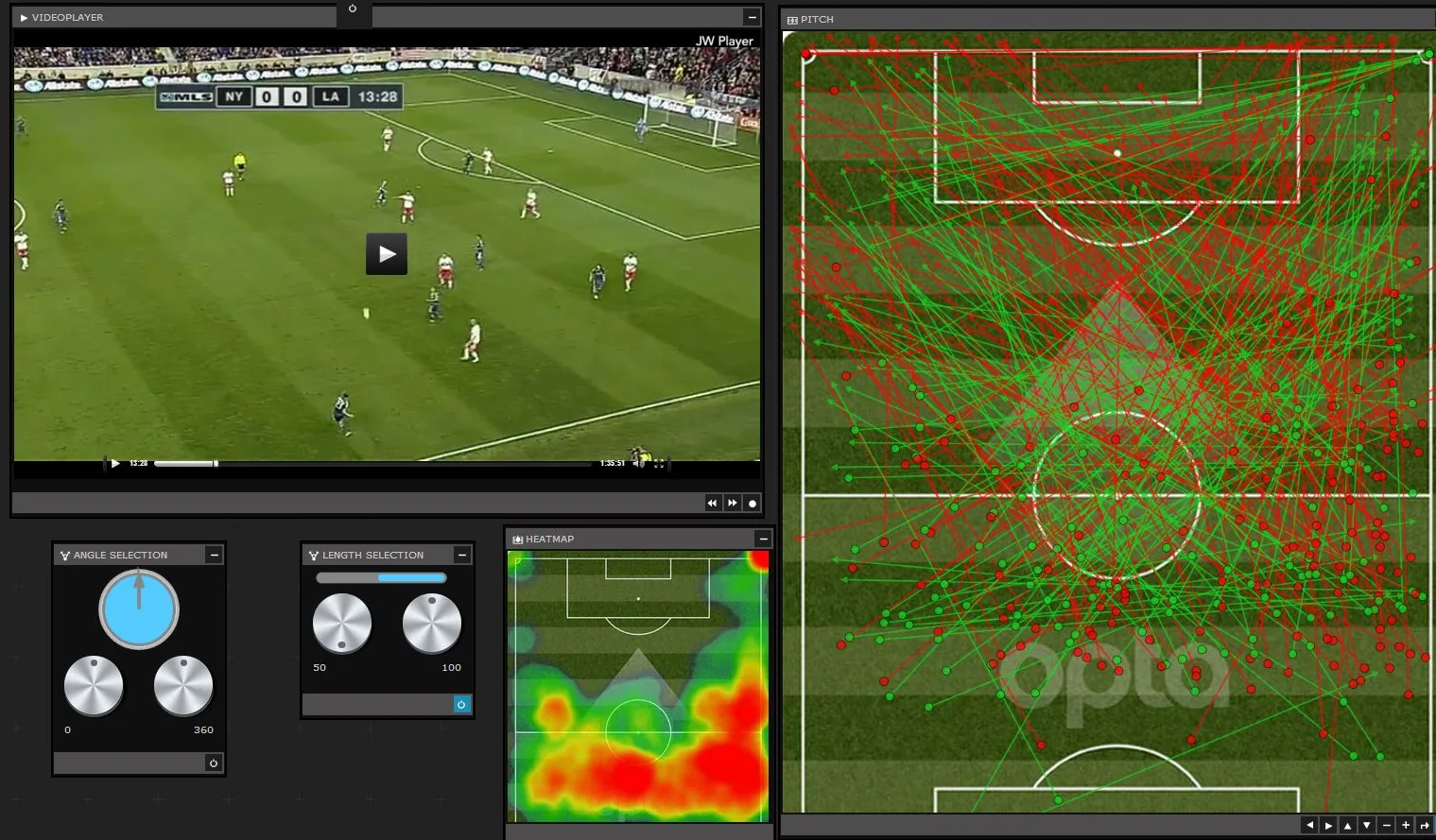AI and data analytics are transforming football in two major areas: on-pitch performance and fan engagement, reshaping how players, coaches, and fans experience the game.
1. Enhancing On-Pitch Performance
AI and advanced data analytics provide deep insights that go beyond traditional statistics, helping clubs make informed decisions to improve team performance:
- Player Analysis and Scouting: AI-powered platforms analyze vast datasets, including historical performance, physical attributes, and potential growth, to help teams scout talent effectively. By analyzing player movements, strengths, and weaknesses, clubs can tailor training sessions and build more balanced teams.
- Tactical Analysis: Video analysis tools, powered by AI, allow coaches to study gameplay in real-time, identifying patterns, weaknesses, and tactical adjustments. Systems track players’ positioning, decision-making, and interactions on the field, giving coaches actionable insights for adjustments and strategic planning.
- Injury Prevention and Management: Wearable devices and machine learning models assess players’ physical exertion, recovery levels, and movement patterns. By analyzing these metrics, AI can predict injury risk, allowing medical staff to make proactive interventions and better manage player fitness.
- Real-Time Performance Metrics: AI can deliver real-time performance metrics during matches, informing substitution decisions and adjustments in tactics. By continuously assessing fatigue, positioning, and ball engagement, coaches get a data-driven understanding of player status and game dynamics.

2. Revolutionizing Fan Engagement
AI is also reshaping how fans experience the sport, creating a more interactive and personalized environment for followers:
- Personalized Content and Experiences: Using machine learning, football clubs can tailor content for individual fans, creating personalized news feeds, video highlights, and notifications based on favorite players, matches, and previous engagement. This approach keeps fans more connected and engaged.
- AI-Driven Highlights and Commentary: Advanced algorithms can generate highlights, real-time insights, and commentary tailored to each fan’s preferences. For example, if a fan follows a specific player or team, AI can deliver relevant content immediately, enhancing the viewing experience.
- Virtual and Augmented Reality (VR and AR): AI-enhanced VR and AR experiences allow fans to “step into the stadium” or immerse themselves in live games, replays, and other interactive experiences from anywhere. Clubs use this technology to create virtual tours, exclusive behind-the-scenes content, and interactive viewing experiences, adding layers of engagement.
- Fantasy Sports and Predictive Analysis: AI powers predictive analytics for fantasy football, simulating potential outcomes and helping fans make informed decisions for fantasy teams. Some platforms even allow fans to interact with AI-based predictive tools during live games, enhancing the fantasy sports experience with data-driven insights.
- Social Media and AI Chatbots: AI-driven chatbots engage fans on social media, answering questions, providing match updates, and even creating trivia or mini-games. Clubs leverage these bots to keep fans informed, address queries in real-time, and foster a sense of community.
The Future of AI in Football
Looking forward, AI’s impact on football is only set to grow. Advanced predictive models, real-time decision-making systems, and fan engagement tools will continue to evolve. With AI, football clubs can improve both on-pitch success and fan loyalty by delivering smarter, data-driven experiences, leading to a more interactive and strategic approach to the sport.








